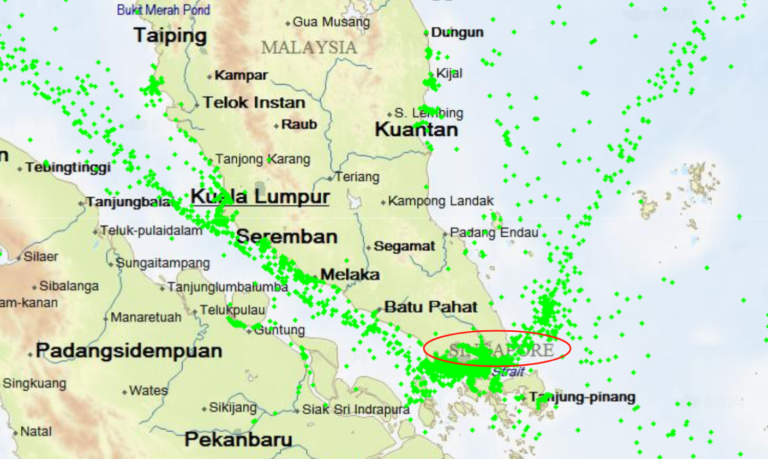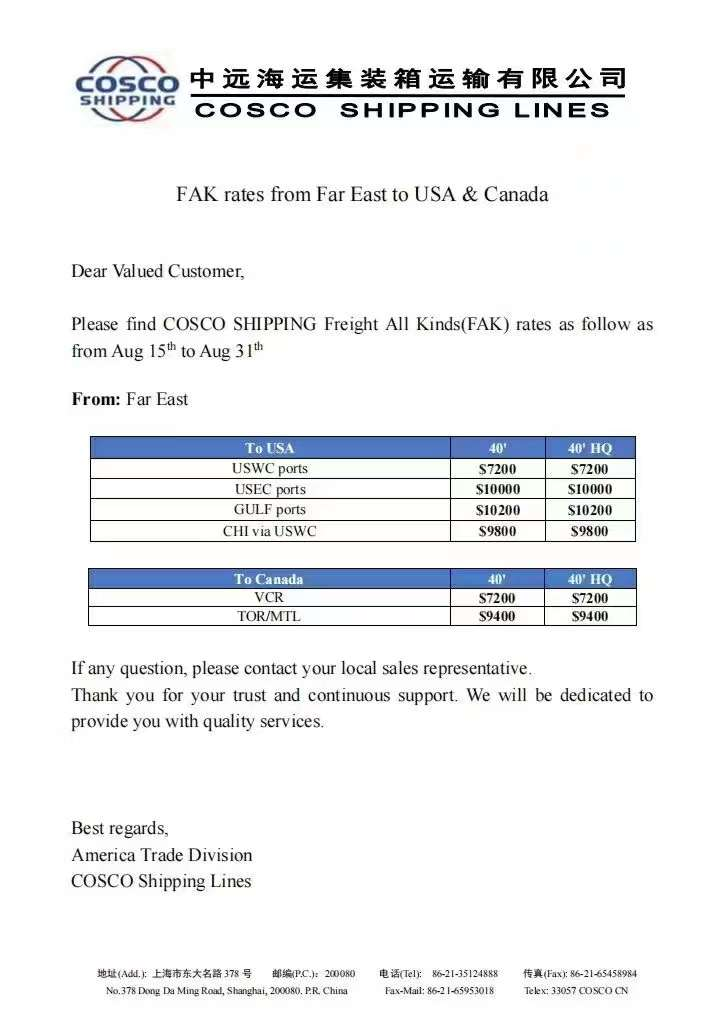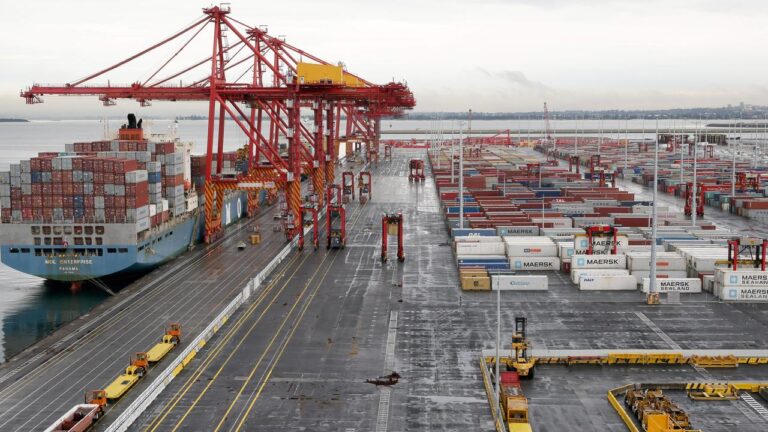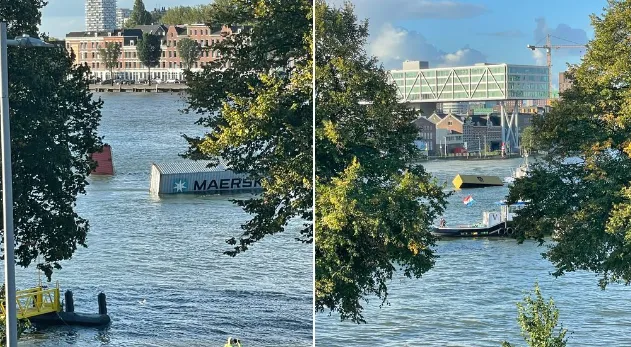U.S. Customs Inspection Rates Soar!
— Strictly check vague and non-compliant cargo description; gifts/ daily necessities / accessories / parts / consolidated cargo focus on inspection

This month, the inspection rate of various customs in the United States has sharply increased, with low-value goods becoming the subject of rigorous scrutiny. This trend has also extended to Canada, with customs authorities in the entire North American region subjecting goods arriving at ports to stringent inspections. At the beginning of the month, the U.S. Customs and Border Protection (CBP) issued a notice regarding vague commodity descriptions in cargo information. The announcement states: “CBP will implement cargo information transmission nationwide starting April 1, 2024, to communicate with declarants regarding goods with ambiguous or non-compliant descriptions.”
According to relevant regulations, cargo descriptions must be specific and precise. Some common vague descriptions will no longer be accepted, including:
- Gift
- Daily necessities
- Accessories
- Parts
- Consolidated
(Note: The use of “consolidated” is acceptable only at the master bill of lading level)
CBP will send messages to customs brokers through the ACE Cargo Release system after goods clearance, and importers and customs brokers should handle these messages and cooperate with shippers and bill of lading issuers to ensure future compliance with regulations.
Below is an example of a small-value cargo message concerning vague cargo descriptions:
“Cargo description unacceptably vague. A precise description is required.”
Vague product names are highly likely to trigger AMS feedback code 6H (Do Not Load). Goods receiving feedback with code 6H will not be allowed for loading. Only after modifying the product name to comply and contacting customs by phone to obtain code 6I (Hold Removed), can the goods be loaded onto the ship. Customs brokers and freight forwarders should adhere to the same standards as carriers and screen data to comply with cargo declaration regulations. When issues are identified, they should review the compliance of cargo information and take corrective actions. If CBP identifies any non-compliance issues, additional actions may be taken by CBP.
Customs original text link: https://content.govdelivery.com/accounts/USDHSCBP/bulletins/393b4e6?reqfrom=share
[Original announcement]

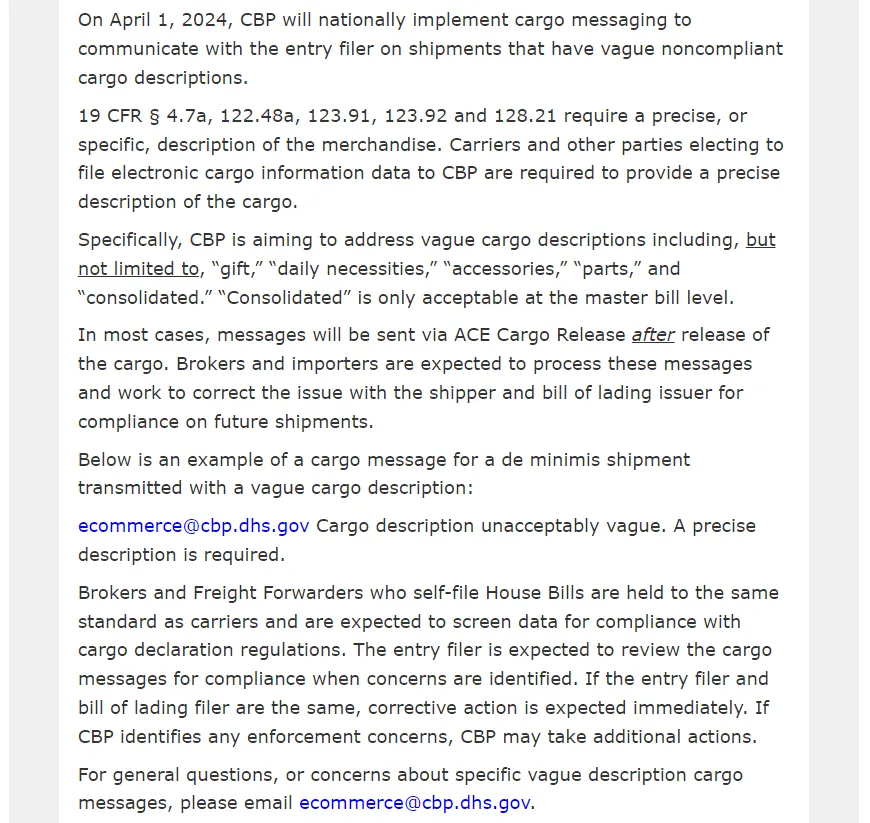
Attention! Failure to handle promptly may result in delayed shipment.
It has been noted that Los Angeles, Houston, Atlanta/Savannah, Oakland, Norfolk, and Detroit are currently subject to random inspections, particularly due to issues related to cargo value and importers. Chicago, New York, Dallas, and Miami are undergoing random inspections, focusing on cargo value, EPA, CPS, and FDA-related concerns.
Friendly Reminder:
All freight forwarders on the US route must ensure compliance with declarations to avoid disruptions to normal business operations or potential losses.

